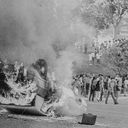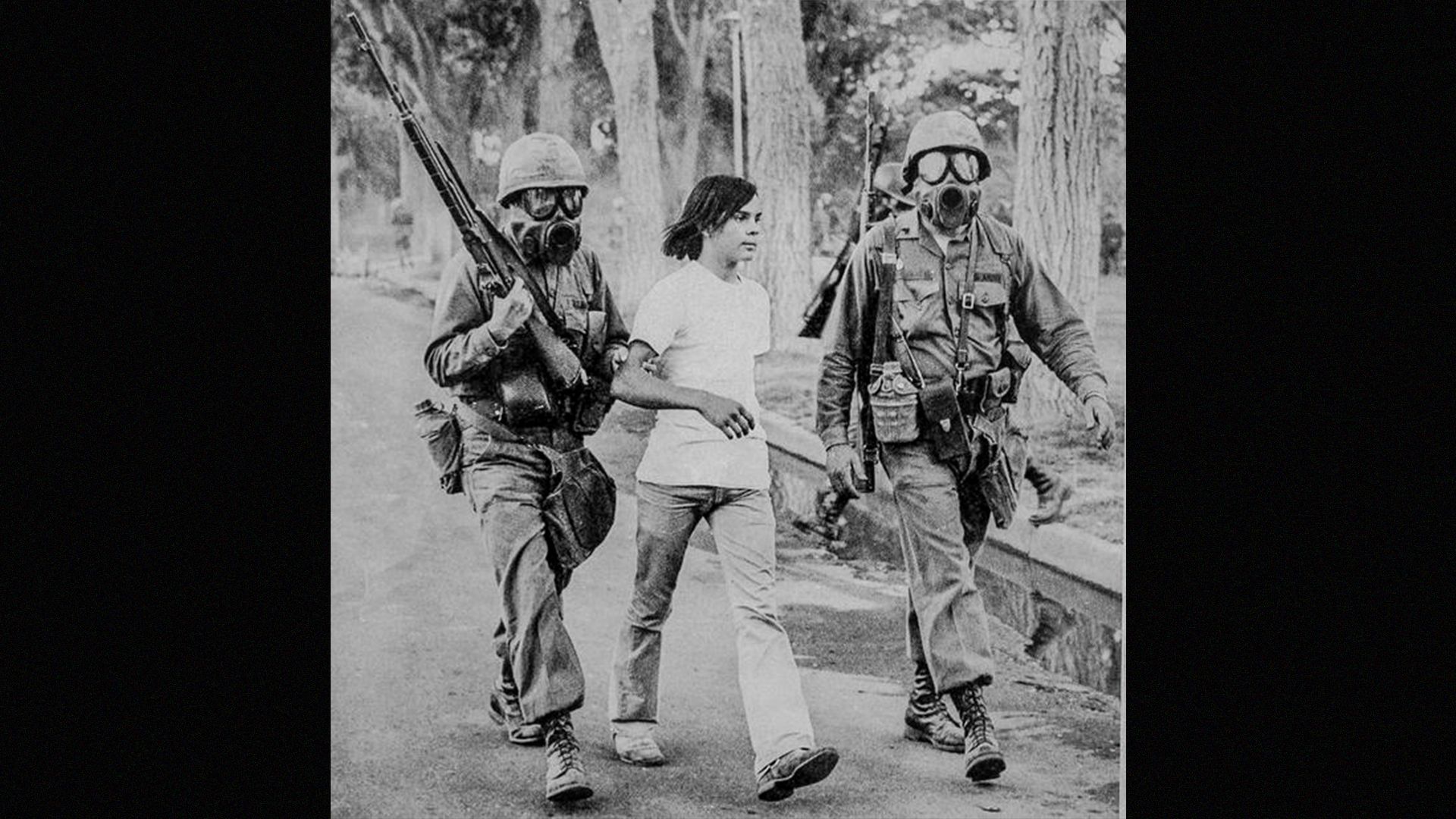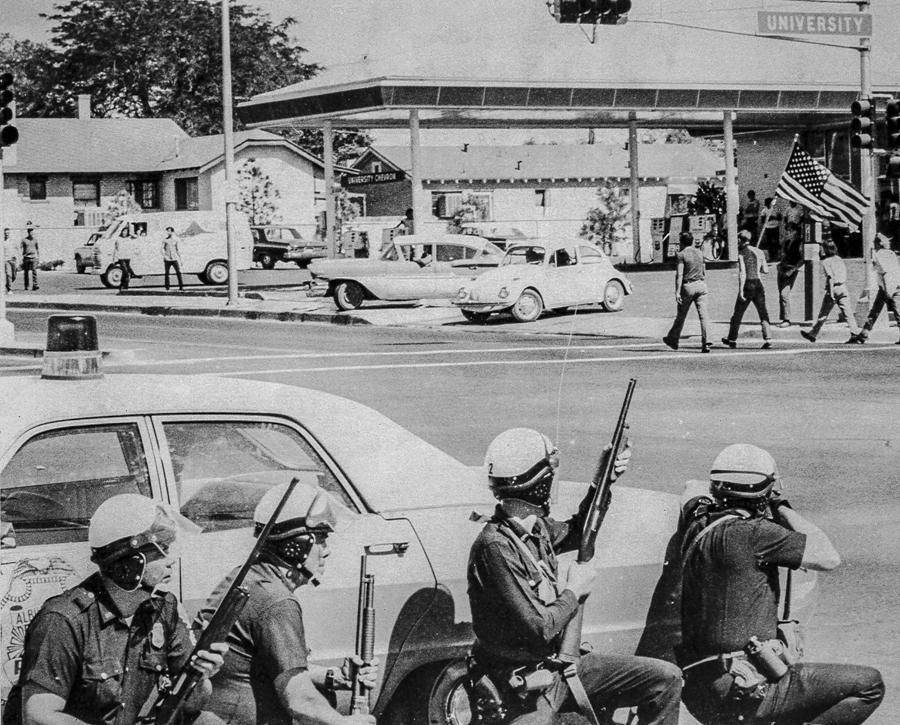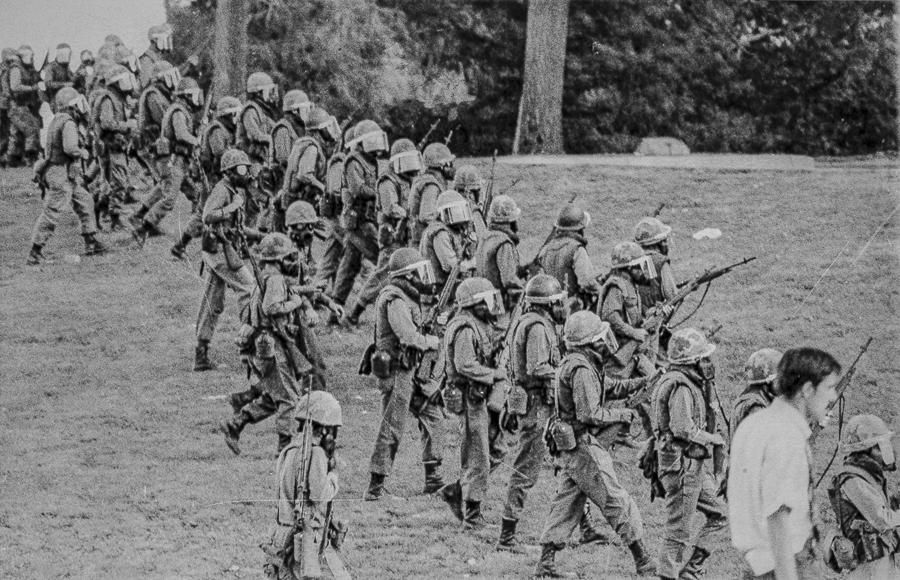Albuquerque marks 50th anniversary of Mexican American uprising over police violence

Activists in Albuquerque this week commemorated the 50th anniversary of one of the first modern Mexican American rebellions against police over discrimination and harassment.
Why it matters: The "Albuquerque uprising" is part of the forgotten history of protests against police mistreatment of Latinos in the 1960s and 1970s. Since the murder of George Floyd, Latino advocates have tried to draw attention to that history and the often-overlooked police violence against Hispanics today.
Background: In June 1971, the arrest of several Chicano teens for underage drinking at Albuquerque's Roosevelt Park set off 30 hours of violence in New Mexico's largest city.
- Hundreds had gathered in the park for a concert. As the police became more aggressive, young Mexican Americans threw rocks and bottles at officers, yelling "Chicano power" and other slogans.

- Officers “started putting on strong pressure, and some of the guys got fed up,” Richard Moore, minister of justice for the Black Berets, a militant Mexican American group, told the Daily Lobo at the time.
- Police fired their guns in the air and tossed tear gas but the angry crowd overturned police cars, started fires and smashed windows, forcing officers to flee.
- The uprising didn't end until the National Guard was called in. Some 600 people were arrested, dozens injured and the area and nearby buildings suffered an estimated $5 million in damage.

The intrigue: The unrest led to reforms in the Albuquerque police department and forced officials to acknowledge the ongoing harassment of Latinos. In the lead up to the rebellion, Mexican American activists had been complaining about police excessive force but officials had ignored them.
- “I know we have police brutality in Albuquerque,” New Mexico Lt. Gov. Robert Mondragon told a crowd at Roosevelt Park the day after the rebellion started. “Police brutality is not alleged—it is factual.”
Like previous clashes with police and Black Americans in places like Cairo, Ill., and York, Pa., the uprising came after years of physical harassment and brutality by white officers and a new influx of federal funds that gave police department military equipment.
- Such rebellions against police in smaller cities have been dismissed as "hoodlums" who just rioted, Yale historian Elizabeth Hinton points out in her new book, "America on Fire: The Untold History of Police Violence and Black Rebellion Since the 1960s."
- Hinton argues that a generation after the Civil Rights Movement, people of color used violence as a political tool to fight growing police harassment and oppression.
- The country saw similar rebellions by Puerto Ricans and Mexican Americans in Jersey City, N.J.; Pharr and Houston, Texas; Oxnard, Calif.; and Bridgeport, Conn.

Don't forget: Albuquerque today remains under a federal consent decree to reform its police department following a 2014 U.S. Justice Department investigation that found routine use of excessive force.
- An independent monitor has repeatedly criticized Albuquerque police for refusing to change its culture.